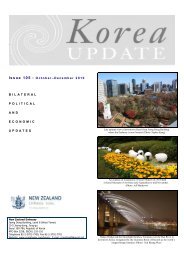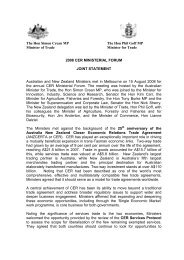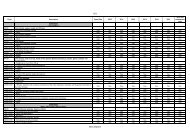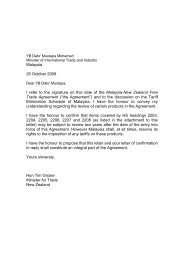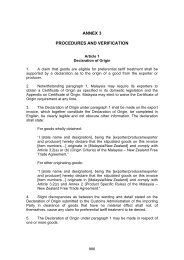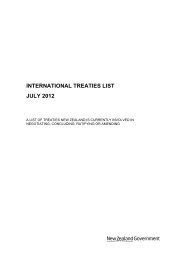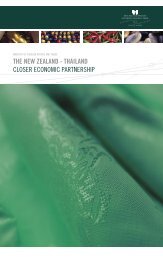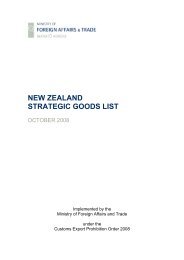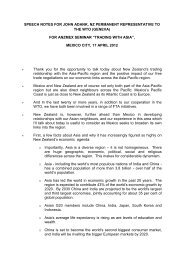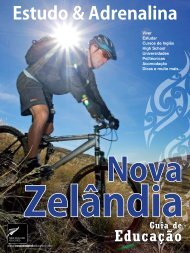New Zealand's National Universal Periodic Review (UPR) Report ...
New Zealand's National Universal Periodic Review (UPR) Report ...
New Zealand's National Universal Periodic Review (UPR) Report ...
- No tags were found...
Create successful ePaper yourself
Turn your PDF publications into a flip-book with our unique Google optimized e-Paper software.
33Areta Koopu suggested that 3.4 (Senior Citizens) should refer to the increasing number ofolder Maori. Koopu noted that only a few years ago Maori did not register in the SeniorCitizens category, however, increasing numbers are now living past 65. The relativenumber of older Maori was however still low. Koopu also noted that the government wasnot providing sufficient subsidies for hearing aids – many older Maori who needed suchdevices could still not afford them.Annette Sykes noted that 3.5 (Violence within Families) was silent on the elimination ofviolence against women. Sykes went on to note that the most effective work beingundertaken to address this issue was being done by the voluntary sector, but thoseorganisations do not receive funding – the 15 Maori Women’s Refuges were an exampleof this – they see the bulk of women. The Taskforce mentioned in the draft report(Taskforce for Action on Violence within Families) was not working according to Sykes.Tony Wihapi noted that <strong>New</strong> Zealand’s record on violence within families was appalling.Wihapi went on to note that funding was not being provided to implement initiatives aimedat addressing the problem. Furthermore, communities were not being involved in thesolutions, rather they were forced to follow some government model that did not work.Ngaire Whata suggested that the government had a responsibility here, as in many casesit was their policies that had created the problem. Whata noted that previously Maoripeople had jobs and as a result they were proud people – in those times violence withinfamilies was never an issue – the problem has only emerged through privatisation and thesubsequent loss of jobs.Section 4: Identification of Achievements, Best Practices, Challenges andConstraintsAnnette Sykes suggested that 4.2.2 (Human Rights and Countering Terrorism) wasfactually incorrect. Important information had been left out of the draft report on whathappened in a Ruatoki – unlawful searches for example were a fundamental breach ofhuman rights but the report is silent on this. Sykes went on to note that the incident led tocomplaints by the community involved to the UN Special Rapporteur on CounteringTerrorism. The draft report as currently written sanitises the whole issue.Section 5: Key PrioritiesMurrary Henare suggested that economic development targeted at job creation as well aseducation be added as priorities. Henare noted that in many areas there were significantnatural resources which provided a good opportunity for industry, but in those same areasmore and more people were moving away. This results in the breakdown of traditionalfamily networks and all its associated issues. Many communities now suffered fromtransiency of the population, and equally many people are now more isolated than theyonce were. Drug growing is a problem in such places and a lot of resources aresquandered on trying to eradicate the drugs. It would be much more worthwhile however ifthose same resources went into developing industry in isolated areas.Annette Sykes recommended that this section be completely rewritten. Returning to anearlier theme she noted that constitutional reform was a key priority for Maori. Maori werenot after “settlements” – realising cultural self determination was critical. At present Maori



